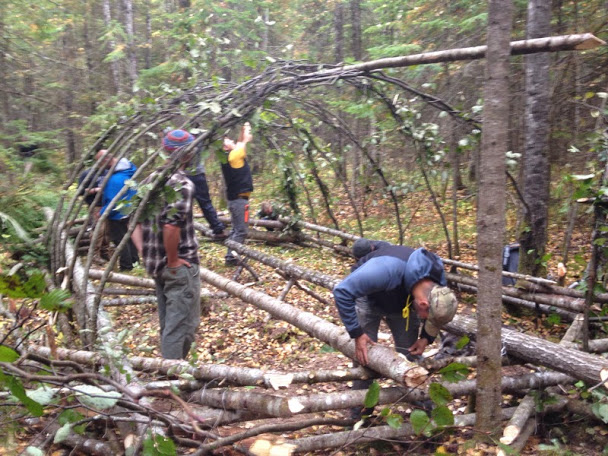Our long-term programs are mentally and emotionally challenging. We want people who attend to be aware of this, and to have the mental and emotional fortitude and maturity needed to be successful here. But this sounds like a platitude you’ve heard before, so let me explain a bit further.
People attending our programs want and expect to be successful and a high achiever while here. But during the course they realize that things are hard and that it takes a lot of time, effort and sweat to become good at things. Sometimes that time is longer than the length of the course. Because we’re busy doing things (not just talking about things) every day, there are a large number of new things that we’re working toward proficiency with at any given time.
When things get hard, people get frustrated; the experience of not being great at something is in conflict with the expectations they had of being a successful high achiever. This is especially true for people who are naturally smart or athletically gifted – they’re used to things coming easy.
This conflict between their expectations of being really good and the reality of struggling and not feeling successful breeds negative feelings. At this point, a person has three options:
- They blame themselves for the negative feelings, resulting in low confidence.
- They blame the instructor or course for the negative feelings. They feel the course or instructor is bad because they’re not great at all of the skills presented.
- They realize that this is where growth happens, and it’s part of the process. They work through the negative feelings and they keep working at it.
I’ve seen courses become negatively impacted by individuals with bad attitudes that developed from the second scenario above.
You Are Responsible For Your Attitude
On a long course with us, and in life, YOU are responsible for your attitude. Your attitude will have the biggest impact on your experience and motivation during your time with us. We want people who are mentally and emotionally tough, who can maintain a positive attitude when things are hard and they’re not being successful.
In a survival situation, on expeditions, in business, in sports, in life, this is key. Few things will have as big of an impact as your attitude, and only you are responsible for your attitude.
Regardless of your past, you can begin positive change starting today. Pay attention to your attitude and motivation. Become consciously aware of it a few times per day. Write these things down in a journal or logbook. Be honest with yourself. Reflect on what you’ve written down once per day. Ask yourself what could have altered your attitude in each situation.
We want mentally tough, self-aware people who can work through the negative feelings. It is a journey, not a destination.









Comments on this entry are closed.
Love this! Today, as a society, we have lost GRIT. I myself struggle with it. A program like yours reall challenges oneself to confront and see that for what it is. Not a weakness, but a skill that has yet to become fully developed.
Thanks Marcus. I agree that grit is in short supply.
Learned this lesson the hard way and definitley fell prey to that first scenario for a bit. Made it all that more rewarding to succeed in the end. Tim and his crew are pro guides and it shows, however it’s on you to pick yourself back up when you fall (you will, tough it out)
Also they know where to find the best chicken parm in the biz. Grammys portions for life.
Ha! Grammy’s… the portions, the portions. Great to hear from you Kato and thanks for the comment!